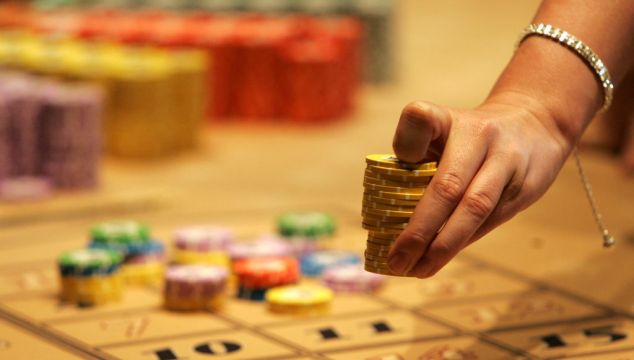Men are five times more likely than women to be at risk of problem gambling, according to a new report.
The Health Research Board (HRB) report, published on Wednesday, looked at gambling trends among people aged 15 and over.
It found that fewer people were gambling in Ireland overall.
Based on a survey of over 5,700 people, almost half of all people had gambled in the past 12 months.
The most common type of gambling was the buying of a lottery ticket or scratch card, with 10 per cent of people gambling in a bookmaker’s shop.
The number of people gambling had decreased from the last survey, from 2,377,000 in 2014/15 to 1,900,000 in 2019/20.
The research found that when lottery gambling was removed, men were more likely to be gamblers than women.
“This new HRB data indicates that most people who gamble, do so safely,” said Dr Deirdre Mongan from the HRB.
She said that men are five times more likely than women to be at-risk gamblers.
“It also shows that gambling problems affect the lives of 135,000 people in Ireland, in particular, young men and people experiencing socioeconomic deprivation.
“The correlation between problem gambling and harmful alcohol or drug use is of real concern as the presence of substance use disorders can lead to difficulties in treatment,” she said.
The survey found that there are 12,000 problem gamblers in Ireland, with 35,000 gamblers described as “moderate-risk gamblers”.
Problem gambling, researchers found, was linked to unemployment and living in a deprived area.
“The report highlights the need to understand both the social and psychological risk factors that lead to problem gambling in order to shape regulatory and public health responses,” Dr Mongan said.
“This could include the regulation of access to gambling, the screening of individuals at-risk, and the provision of and greater access to dedicated treatment services.”







